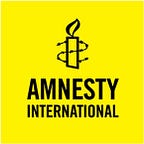Why the UK Supreme Court must hear Nigerian oil pollution appeal
By Lauren Armistead and Mark Dummett, Amnesty International Business and Human Rights researchers
The UK’s Supreme Court is expected to rule soon on whether an appeal by two Nigerian communities, which are seeking damages from Shell in relation to ongoing environmental pollution caused by spills from the oil multinational’s pipelines, can go ahead.
If the Supreme Court hears the appeal, then the central argument that it must consider is the extent to which Shell’s parent company, Royal Dutch Shell, with headquarters in the UK, controls and directs its fully-owned Nigerian subsidiary, Shell Petroleum Development Company (SPDC).
On 14 February 2018, the UK Court of Appeal dismissed the claim on the basis that there was a lack of evidence of such control or direction. But the Court of Appeal came to this view in the absence of Shell disclosing internal documentation that would provide evidence of the precise nature of RDS’s relationship to its Nigerian subsidiary.
Amnesty International believes that it is of paramount importance that the Supreme Court decides to hear the case. We have long argued that the world’s most powerful corporations, like Shell, have been able to hide behind the notion that, as parent companies, they are not responsible for the operations of their subsidiaries. While accruing their wealth, parent companies can avoid accountability for their subsidiaries’ alleged role in human rights violations.
Also, as we wrote in a formal intervention to the Supreme Court recently, it is imperative that the judges look at this case given the severe and ongoing suffering experienced by the affected communities. The scale of this was brought home last year when researchers from Amnesty and Nigeria’s Centre for Education, Human Rights and Development visited Ogale.
This town of 40,000 people is on the outskirts of Port Harcourt. In Nigeria’s oil capital even small food shops are stacked with shelves laden with champagne bottles, such is the wealth of the elite. By contrast, according to the United Nations Environment Programme (UNEP), the people of Ogale have been drinking water contaminated with benzene, a known carcinogen, at over 900 times above the international guideline. UNEP’s report, released in 2011, concluded this was “certain to lead to long-term health consequences.”
In response to this shocking finding, the Rivers State Government and Shell, the main oil operator in the region, began delivering water by truck to Ogale and then constructed a water pipeline to the town.
But during visits to Ogale community in 2015 and then in 2018, residents complained to us that this pipeline only ever supplied water sporadically and in inadequate amounts. Although the water in the pipeline was running during Amnesty International’s most recent visit in August 2018, residents said that it had only just been turned on after a long delay. They said that when water was supplied, it was not continuous, and only ran for a short period at a time.
Amnesty International and other civil society groups have repeatedly raised this issue with the Nigerian authorities. Most recently, during a meeting on 28 August 2018, the Nigerian Minister of the Environment acknowledged that the water pipeline was not functioning properly.
The government has also warned residents that even when water is supplied, they should not touch it. Official signs next to communal taps in Ogale warn: “CAUTION: NOT FIT FOR USE.”
Our researchers found that the lack of an adequate supply of clean drinking water forces community members, many of whom are subsistence farmers, to buy water from commercial suppliers. This has a major knock on effect — as they pay for water, they cut back on what they can spend on other essential goods and services, such as school and hospital fees.
Then, when families run out of money for water, they are forced to go back to their old wells — the same ones that UNEP identified as being not fit for use.
It is eight years since the people of Ogale discovered they were drinking heavily contaminated water, caused by numerous oil spills and the failure of oil companies, including Shell, to clean these up in a timely and adequate manner.
However, these residents still do not have access to a guaranteed clean, safe, sufficient supply of water. Efforts by Shell and the Nigerian government to address this crisis, such as through the building of a water pipeline, have been utterly inadequate. The negligence of the Nigerian government and Shell in this regard is potentially having an ongoing and devastating impact on the human rights of the people of Ogale, not only on their right to water but also by extension a range of other rights, including their right to health, to an adequate standard of living, and the right to education.
This dire situation is why the people of Ogale, along with those of Bille community, have come to the UK to seek justice, why the UK Supreme Court should review this case, and why Amnesty stands with the claimants.
